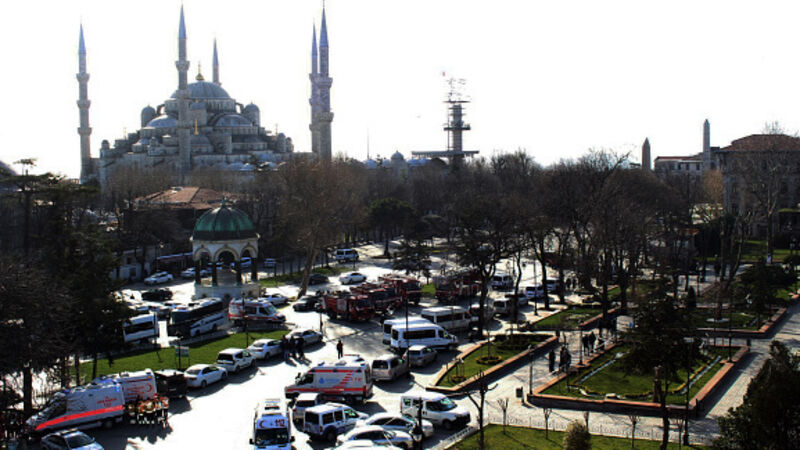IS suicide attack in Istanbul - Like it or not, we are involved

At least ten people, nine of them Germans, were murdered in the atrocity in the Sultanahmet district, near the city’s famous Blue Mosque. President Recep Tayyip Erdogan said Turkey was the “top target for all terrorist groups in the region”. His country, he asserted, was “fighting against all of them equally”.
This attack will again harden attitudes towards immigrants and exacerbate the refugee crisis — which, of course, is one of the objects of the exercise for the bararians in IS. Without a refugee crisis, their dark-ages mission of destruction becomes more difficult and even less plausible.
Though they are not entirely to blame for that crisis, without it, and without the abhorring publicity the regular beheadings or burnings of Western and local hostages brings, the organisation would hardly rank in international consciousness. Without international attention, IS becomes no more than a domestic, or, at worst, a regional problem for those countries afflicted by their cancerous presence.
There are valid tactical reasons, even if immoral ones, for targetting Turkey, from an IS point of view. Turkey, on foot of a €3bn pledge from the European Union, has accommodated 2.2m Syrian refugees — we, unambitiously and grudgingly, have promised to take 4,000 over a number of years.
In stark contrast, Turkey announced on Monday that it planned to give work permits to refugees to stem the flow of displaced people into Europe. This safety valve, utterly dependent on the tolerance of Turks and EU finance, may relieve the pressure generated by growing refugee numbers in Europe.
Those numbers, and the appalling behaviour of a minority of them in European cities on New Year’s Eve, have already caused political leaders, especially German Chancellor Angela Merkel, pause for thought.
Sweden, too, has shifted its position by reinstating identity checks on the 16km Øresund Bridge, a direct link between Denmark and Sweden. Germany and Sweden are paying a heavy price for leading the way in the humanitarian crisis of our day.
Street protests by right-wing groups, and vigilante attacks on migrants in some German cities, have added to the sense of something nasty simmering just below the surface. Growing support for Marine Le Pen’s Front National, in France, adds to the gathering gloom. All of these difficult issues might make it easy for us to shirk our responsibilities, but that would be a terrible mistake. Like flooding, and climate change, the refugee/immigration crisis will be one of the defining issues of this century. We cannot choose not to respond. We cannot pretend we are not involved, nor that our contribution to the problem, or to the solution, is so small as to be irrelevant. The sad and deeply revelatory thing is that, in our heart of hearts, we already know that.










